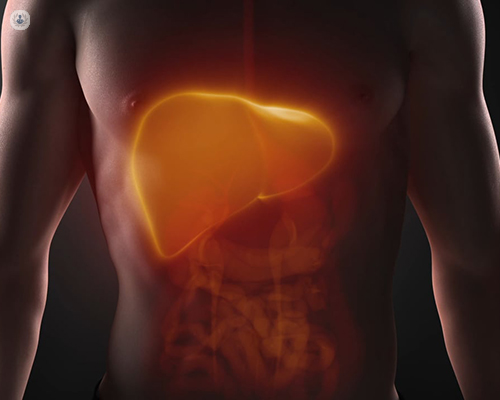Fatty liver disease: causes, symptoms, and diagnosis
Written in association with:What exactly is fatty liver disease, and what are the different types? Here to provide the answers to these questions and to provide more detail with regards to the disease is distinguished consultant gastroenterologist and hepatologist, Dr Giovanni Tritto.

What is fatty liver disease?
Fatty liver disease, also known as hepatic steatosis, is a condition where excess fat accumulates in the liver. It affects millions of people worldwide and it is, nowadays, the most common liver disease.
What are the associated symptoms?
The disease is asymptomatic for decades. Symptoms appear at the very late stage, when severe liver damage (liver cirrhosis) has developed. Therefore, it is most frequently discovered incidentally.
What causes fatty liver disease?
There are two types of fatty liver disease: alcoholic and non-alcoholic. Alcoholic fatty liver disease is caused by excessive alcohol consumption, while non-alcoholic fatty liver disease has a metabolic origin, and is often associated with obesity, high cholesterol, and type 2 diabetes. The two types can sometimes overlap in the same person.
What are the different types of fatty liver disease?
Non-alcoholic fatty liver disease is the most common form of the disease and is often associated with metabolic syndrome. Metabolic syndrome is linked to obesity, a diet rich in saturated fat, lack of exercise, and genetic predisposition, and increases the chances for conditions such as high blood pressure, type 2 diabetes, abnormality of triglyceride, and high cholesterol levels. People with metabolic syndrome have an increased risk of heart disease, stroke, and some cancers.
How is fatty liver disease diagnosed?
The diagnosis of fatty liver disease is usually made through blood tests, imaging studies, and other non-invasive assessment of the disease severity. In some cases, a liver biopsy is necessary. Treatment for fatty liver disease involves, in the first instance, lifestyle changes such as weight loss, exercise, and a healthy diet.
When should I seek medical advice for fatty liver disease?
If you are in any way concerned about fatty liver disease, you should speak to your doctor. If your liver tests show any abnormality or a liver ultrasound suggests fatty liver you should see a doctor for investigation and advice. However, if you experience any of the following symptoms, you should seek medical advice immediately:
- Yellowing of the skin or eyes
- Swelling of the abdomen, legs or ankles
- Confusion or difficulty thinking clearly
- Vomiting blood or passing black stools
If you wish to book an appointment with Dr Giovanni Tritto, visit his Top Doctors profile today.


